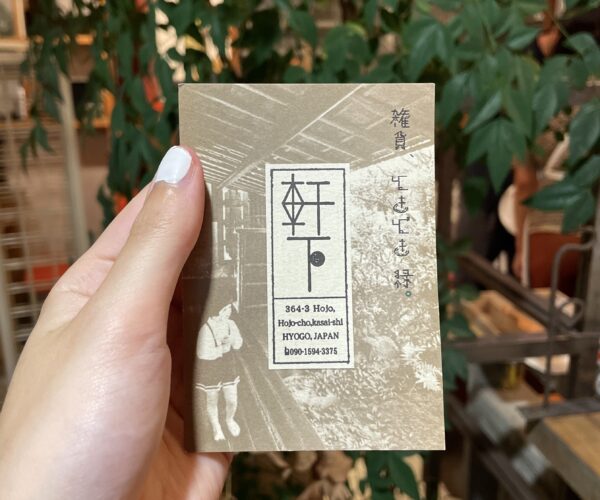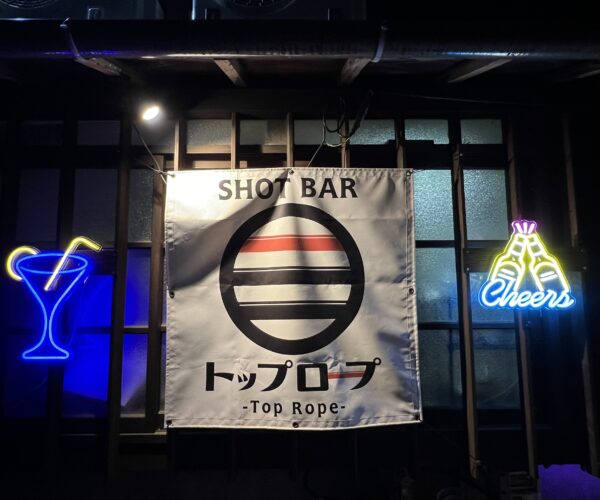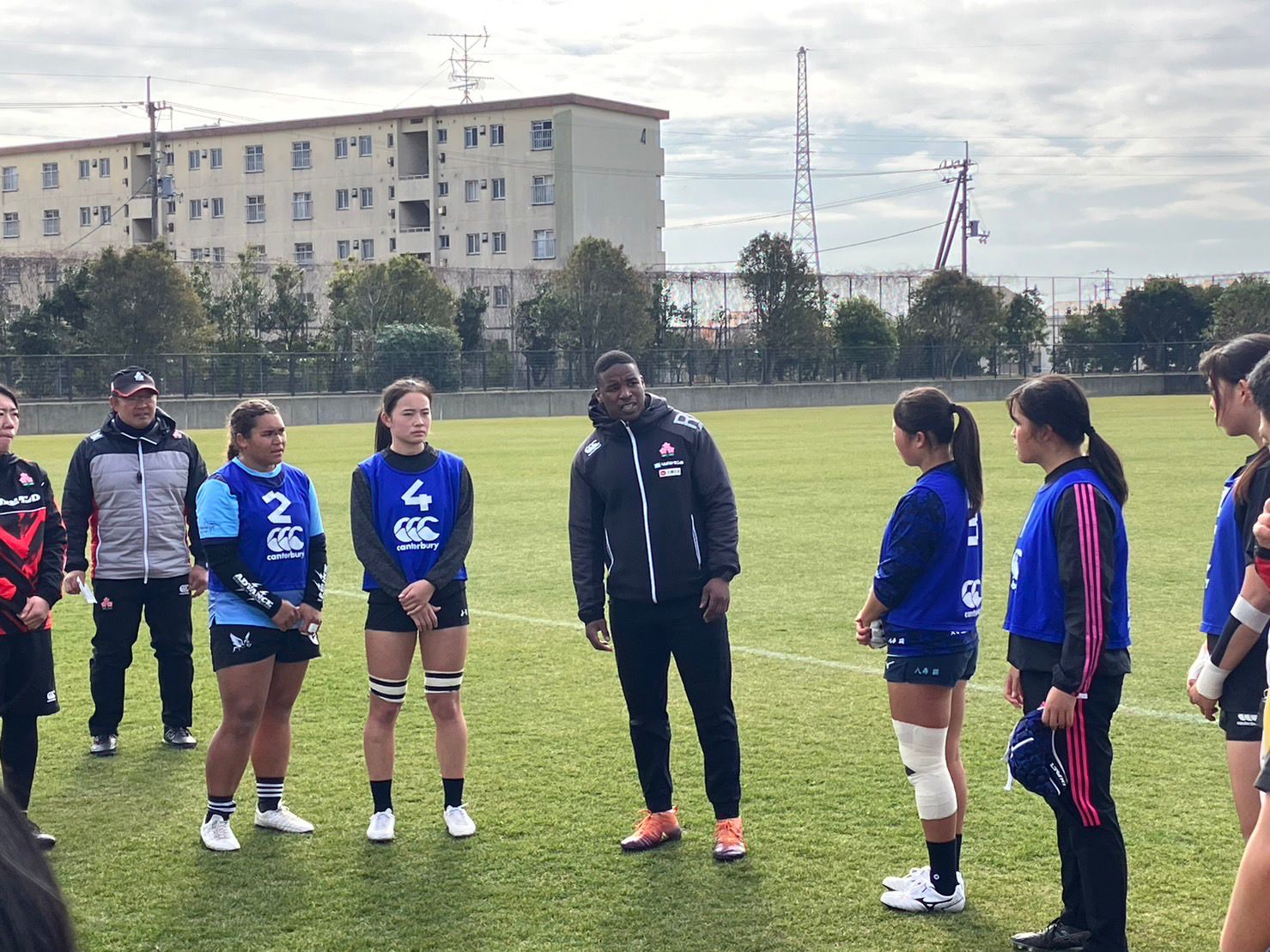South Africa to Japan
This article originally appeared in the October 2023 issue of Connect.
Nabeela Basa (Kagoshima)
The plan was to pursue a business project, based on all the things he is passionate about.
Zukile Ncube lived and worked in Japan (Shimane and Kyoto) for four years as an Assistant Language Teacher (ALT) and rugby player. He is also a fellow South African and friend, a deep-thinker, and one of the most disciplined people I’ve ever met. We both arrived on the JET Programme in 2019 and kept in contact throughout our journey. Our conversations evolved through a pandemic, travel-ban restrictions, and natural disasters. Regardless of the circumstances, our conversations have always carried a forward-thinking approach, while making light of tough situations. This is something I think may resonate with many South Africans: resilience with a side of laughter. Earlier this year, Zukile returned home, with a plan and the characteristic passion I’ve come to appreciate. The plan was to pursue a business project, based on all the things he is passionate about: education, sports, community, impact, and change. Thus, The Athlete Performance Mentorship (APM) was founded.
“Do not judge me by my successes, judge me by how many times I fell down and got back up again”
— Nelson Mandela
Leadership is at the forefront of this project, which can be understood better after looking at what drives Ncube’s leadership: where he grew up, and the skills and experience he gained from his time in Japan. South Africa, with its oppressive and disadvantageous history, is still quite young in its democracy, and still has many socio-economic issues. The opportunities many Black, Indian, and Coloured (a classification of a race) South African people have today, was not a reality for many of our parents and grandparents. Many of us are the first in our family to leave the country, and, for Zuki and I, Japan was the first country we travelled to, worked and lived in. APM’s mission and vision is motivated by the significant disparities in education and opportunities for the youth of South Africa, which often leaves them likely to engage in illicit activities and unfavourable pursuits. APM aims to pay it forward to the South African youth, with the intention of making them a means of positive influence and growth for generations to come. Zukile expressed that he had no international experience before coming to Japan. However, soon after his arrival in Japan, he left no time to waste and joined projects within his community. He was an assistant in strength and conditioning for the TID Youth Girls Team and joined the Rokko Fighting Bull rugby team. He says that his experience in Japan is something that will stay with him for the rest of his life.
The Athlete Performance Mentorship is rooted in South African concepts.
South Africa is a country rich in minerals, nature, culture, and diversity. These aspects may be of great value during cultural exchange between Japanese and South African students. Despite the dark history South Africa has faced, Zukile is one of the many South Africans that represent the potential, drive, positive attitude, resilience, and creative talent that has come to surface over the past 30 years. The Athlete Performance Mentorship is rooted in South African concepts such as the Phambili values. Phambili is a Zulu word which means “forward or ahead.” Phambili values are what form the foundation of APM, and include excellence, commitment, integrity, respect, collaboration, and positivity. The value of collaboration encompasses another very important African philosophy: “The Spirit of Ubuntu”. Ubuntu is a traditional African concept which comes from Zulu and Xhosa and roughly translates as “humanity towards others.” A concept that may resonate with Japanese people,[pull quote]] as it encompasses the values of maintaining harmony and the spirit of sharing within a society.
“The Spirit of Ubuntu”
APM believes that if young people are equipped with skills and opportunities, this will allow them to contribute and become great leaders. In a presentation about APM, Zukile explained his aim is to create “new opportunities for young athletes from South Africa to study and play sports in Japan by providing them with the tools and support to excel academically, athletically and in life.” Personal growth and well-being are a priority when promoting cultural exchange through community and economic growth. “Ultimately, we are committed to empowering student athletes, nurturing their talents, and leaving a lasting positive impact on individuals, communities and the world.”
Ubuntu is a traditional African concept which comes from Zulu and Xhosa and roughly translates as “humanity towards others.”
In just a matter of months after returning to South Africa, Zukile is well on his way to building his business, with this amazing mentorship program between South Africa and Japan. His story has been an inspiration to me and a great reminder. A reminder of the drive, attitude, and belief that it once took for us to leave our countries for the very first time and live abroad, through all the challenges. Furthermore, our experience of Japan can help us return home with a clearer vision for addressing, and contributing within, our communities. We are also given the opportunity to open doors of communication with the communities we become a part of in Japan. I am inspired by him as a fellow South African and someone who is preparing to leave Japan and start a new chapter. Thank you, Zukile Ncube. You have ignited the spirit of Ubuntu in a fellow South African. “Umuntu ngumuntu ngabantu” (which literally means “a person is a person through other people”).
Zukile Ncube was an ALT who lived and worked in Japan for four years.He studied politics and international relations at the University of Cape Town. He is passionate about education and sports. He believes that “all people have potential. Through opportunities and experiences we can explore what is possible.”




